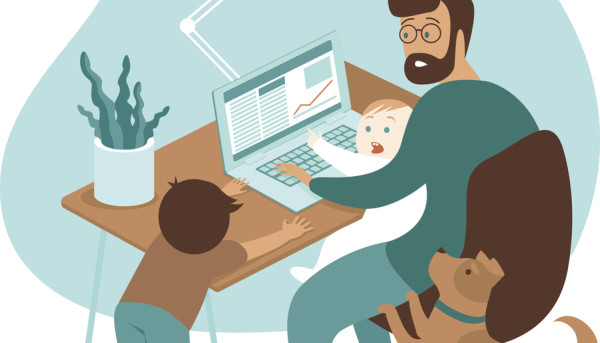How to Make Money Selling Food Out of Your Kitchen
How to Make Money Selling Food Out of Your Kitchen

One of the easiest ways to earn money from home is to start selling food out of your kitchen. This can be done by providing your own products or by canning and selling them to other people. There are several ways to sell your products, including farmers markets, social media, and advertising.
Cost of starting a home-based food business
If you are thinking about starting a home-based food business, you will want to budget for startup costs and ongoing expenses. Although starting a food business can be a lucrative venture, it can also be expensive. Many food entrepreneurs simply assume that selling their products will be an easy task. According to Steve Brodsky, owner of 3 Star Chefs, it is important to have a solid business plan, invest in marketing and PR, and research your competitors. In addition, you should be able to set a fair price for your products.
You should also consider whether you need help with your new venture. You will probably need employees, a kitchen or a cool cellar, and refrigeration. You may also need vermin-proof storage containers and proper handling systems. If you're thinking of a home-based food business, you should consider how much time it will take you to get everything set up.
When starting a home-based food business, it's important to decide where you will get your ingredients. While you could buy ingredients at your local store or supermarket, a more cost-effective option is to use a wholesale distributor or a commercial distribution chain. However, these options aren't suitable for every home-based food business.
If you're planning to sell food, you should check with local zoning officials before starting your home-based food business. In some areas, it is illegal to sell food prepared in a home kitchen without proper council approval. You must also adhere to food safety laws. A home-based food business could include catering at events, preparing food for B&Bs, or selling food online.
Setting up a food enterprise can cost tens of thousands of dollars. Unfortunately, many people cannot afford this type of expense. To make your home-based food business a reality, you can apply for a home-based food business exemption from food processing regulations. This will enable you to start a home-based food business for as little as $15,000!
Another consideration is how to price your goods. Besides ingredients, there are also other costs to consider, such as space and equipment for baking, hygiene, electricity, and the cost of aprons and mitts. You'll also need to consider marketing. Your food business may be more successful if you have a strong marketing strategy.
Cost of a commercial kitchen
The cost of a commercial kitchen for selling food can vary. Some units start at a few thousand dollars and go up from there. Others may cost as much as ten thousand dollars. It is also important to keep in mind that you need to pass a health inspection, so you should be prepared to spend more money.
The cost of a commercial kitchen depends on the location and whether you want it to be a 24/7 kitchen. Many kitchens have security measures to protect against theft, and some have nighttime hours available. Choosing a shared kitchen can be more affordable than buying one. However, it is recommended to consider the costs involved in maintaining such a kitchen, which may include a maintenance fee and a ServSafe certification.
The rental cost of a commercial kitchen can vary greatly. Some kitchens cost as little as $15 an hour, while others can cost as much as forty-five dollars per hour. Prices also vary by location and area, so it is recommended to compare rates and find the best one. You should also consider the number of hours you'd like the kitchen to be open, as well as the number of people you'd like to accommodate.
Generally, kitchens are much more expensive in major metropolitan areas. In New York, for example, a commercial kitchen of one thousand square feet will cost about $250,000 to build. But if you're creative, you can save on this cost. You can also choose the appliances that suit your business needs.
Some commercial kitchens are for rent on a monthly basis or can be leased for a specific amount of time. Some require a security deposit and monthly membership fees. You should also remember that the rental cost for a commercial kitchen can reach several thousand dollars. You can also rent one of the spaces on Peerspace. If you don't have a large budget, you can rent a commissary kitchen. The monthly rental costs are $250 to three thousand dollars in Chicago and San Francisco. However, these kitchens come with a three-hour minimum.
If you're planning on selling food, a commercial kitchen may be the best option for your needs. Its equipment, size, location, and hours should all be considered when searching for a commercial kitchen. If you're planning on hosting a pop-up restaurant event, a pop-up restaurant, or selling food online, a commercial kitchen can help you start your business.
Cost of insurance
If you plan to start a food business out of your kitchen, it is important to understand the cost of insurance. The cost of liability insurance for food vendors ranges from around $300 to $1,300 a year, but costs can vary significantly depending on the size of your business and how much coverage you require. You should also consider whether your business is more or less risky than others, as different policies have different levels of risk.
Small business insurance for food vendors can be very affordable, but it is critical to have adequate coverage to avoid paying out more money than you can afford. In order to get a competitive price, you should compare insurance offers from at least three carriers. By comparing quotes, you can see what kind of coverage you can expect for a specific premium amount.
The cost of food service insurance will vary based on the type of food business you're running and the type of equipment you use. A food truck, for instance, may need $180 in monthly premiums, while a catering business may pay as little as $30 a month. The amount of premium you pay will depend on the amount of coverage you need, but it's well worth it to protect your business.
A good partner for microbusinesses and sole proprietors in the food industry is Hiscox. This company specializes in food vendor insurance and offers monthly premiums starting at $30. You can get a coverage limit of up to $2 million and adjust it as needed. Most food and beverage businesses choose to buy policies with $1 million per-occurrence and $2 million aggregate limits.
Cost of getting a license to sell food
There are a few things to keep in mind before starting a business selling food out of your kitchen. First, you'll need to pay for a food handler's license. This will ensure that you don't double-tax your wholesale food. The fee for this license is around $50. Depending on your location, you may also need to obtain a building health permit and an employee health permit.
Once you have the permit in hand, you'll need to get inspected by the health department. They will check for violations of health codes and provide notes on corrections. They will also provide you with an overall grade. The inspector will look for clean kitchens and food storage, and they'll also look for a clear HACCP plan. Depending on your city, this process can cost from $50 to $1,000.
Once you get inspected, you can start selling your food to the public. In New York, you can sell prepared foods and baked goods, as long as you meet the requirements for each. You will also need to register with the Department of Agriculture and Markets. While it may seem difficult, the registration fee is well worth it.
A food service license will vary in price depending on the size of your restaurant and the number of seats. A food service license costs anywhere from $100 to $1,000 depending on how many employees you plan to hire. If you plan to sell your food online, however, you'll also need to have a business license and a physical storefront.
When starting a food truck, it is important to know how to get the proper parking permit in your area. In some cities, you'll need a special event permit that allows you to sell your food at a public event. Most festivals and sporting events have an event coordinator who can provide you with the information you need to start selling food.











